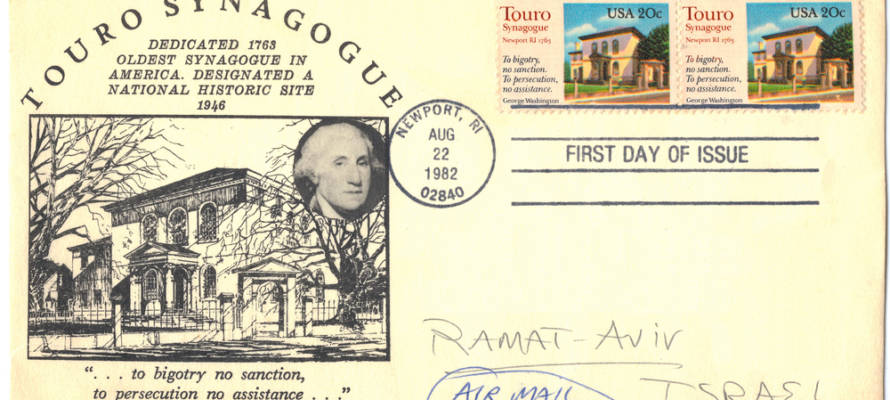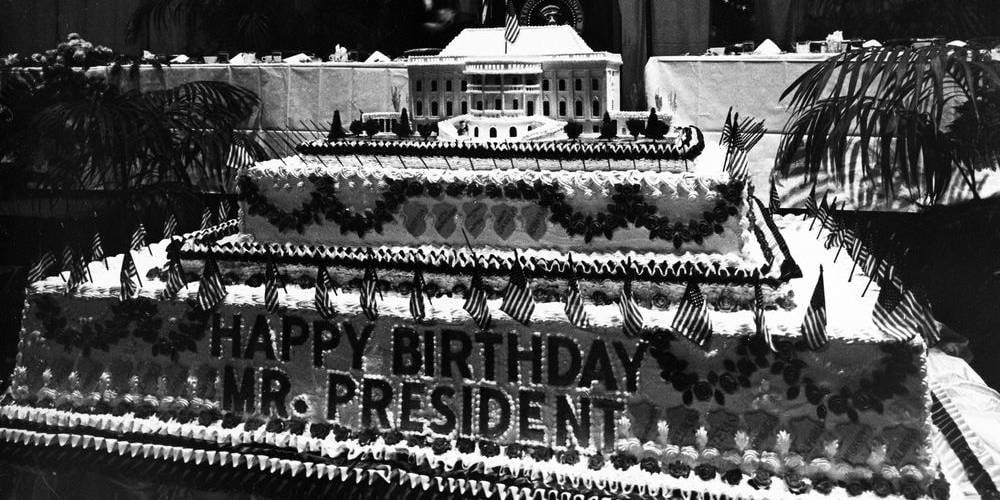Most of you probably haven’t heard that some of America’s most famous presidents have had unique historic connections to the Jewish community.
By Yakir Benzion, United With Israel
To help commemorate President’s Day this week, the Jewish news website The Forward featured several stories about the intriguing, unusual and esoteric ties some of America’s greatest leaders have had with Jews and Judaism.
President’s Day is officially celebrated as Washington’s Birthday – George Washington’s birthday was Feb. 22, 1732 – marked annually on the third Monday of February as an official national holiday. Over the years, however, the day has become a commemoration of all of America’s presidents. To mark the occasion, The Forward revealed some Jewish anecdotes, starting with the first president of the United States.
In August of 1790, Washington visited Newport, Rhode Island, where one of the locals to greet the leader was Moses Seixas of the Touro Synagogue, America’s oldest still-standing house of Jewish worship that was founded in 1763. At the time, Jews comprised less than one-tenth of one percent of the young country’s population of barely four million.
Washington wrote his now-famous response to the citizens of Rhode Island in which he repeated a section of the letter of greeting from Seixas: “For happily the Government of the United States, which gives to bigotry no sanction, to persecution no assistance, requires only that they who live under its protection should demean themselves as good citizens…”
In 1776 the Virginia Bill of Rights declared that “all men are equally entitled to the free exercise of religion,” but that referred to “the mutual duty of all to practice Christian forbearance, love, and charity toward each other.”
It was Washington who, in 1790, acknowledged the rights of all citizens, including Jews, to practice their faith.
Washington has a street named after him in central Jerusalem, as does Abraham Lincoln – where, to the amusement of Americans, Israelis pronounce the street “link-o-lin.”
Professor Jonathan Sarna of Brandeis University wrote an entire book on Lincoln and the Jews. Lincoln befriended fellow Illinois state legislator Abraham Jonas, who was instrumental in Lincoln’s successful ascent to the White House. One of his acts as president was to strike down a congressional regulation that only Christians could become army chaplains, and later he overruled General Ulysses S. Grant, who had ordered all the Jews out of Tennessee.
“Nobody realized that Lincoln played such a crucial role in making Jews equal in America. Nobody paid attention to Lincoln’s rhetorical shift away from ‘Christian America’ language and toward inclusive language,” Sarna wrote.
At the beginning of the 20th century, Teddy Roosevelt became the first U.S. president to appoint a Jew to a cabinet position (Oscar Solomon Straus as secretary of commerce and labor) and was a vocal supporter of a Jewish homeland in Palestine. At a time when Jews were fleeing czarist tyranny in Russia, he supported Jewish immigration and apparently kept two menorahs on display at his estate.
After winning the Nobel Peace Prize in 1906, Roosevelt contributed a portion of his prize money to the National Jewish Welfare Board. Years later, in 1918, shortly after the Balfour Declaration, he wrote: “It seems to me that it is entirely proper to start a Zionist state around Jerusalem.”
One of the most endearing anecdotes is that “teddy bears” are named after Roosevelt. Jewish candy-store owner Morris Michtom was inspired by a cartoon of Roosevelt refusing to shoot a bear his hunting partners had cornered, and after Michtom’s wife, Rose, sewed a toy bear, they placed it in their shop window with the label “Teddy’s bear.”
The bears started selling, but Michtom, who had immigrated to New York City from Russia, wanted to make certain that the president would not be insulted. Michtom sent the original doll (now on display in the Smithsonian) as a gift to the Roosevelt children, with a note asking for permission to call it “Teddy’s Bear.”
The president gave his blessing, and with the bears selling like hotcakes, the Michtoms closed their candy store and founded the Ideal Novelty and Toy Company, which mass-produced the bears into the 1970s – with some of the profits going to the Hebrew Immigrant Aid Society, the Jewish National Fund and similar organizations, The Forward reported.
While Franklin Delano Roosevelt is seen by many as a liberal humanitarian as well as the man who saved American capitalism after the Great Depression, he was not known for being all that friendly to the Jews. At the time of the 1936 elections, The Forward itself was known as a very left-leaning, pro-socialism newspaper (at the time, published in Yiddish) that had previously only endorsed third-party socialist candidates for president.
That changed in 1936 with the winds of war blowing in Europe. The Forward‘s editor, Abe Cahan, had never before endorsed either a Democrat or a Republican, but with the Jews endangered in Europe, he swallowed his socialist pride and urged his readers to vote for Roosevelt.
The anecdotes of the Jewish connections to each president would probably fill a volume, but a sweet ending to President’s Day is the massive cake baked for John F. Kennedy’s 44th birthday by Hartford, CT, baker Myer Keizerstein. The cake weighed 3,000 pounds and was delivered by police escort in an armored car to the National Armory in Washington D.C.
Hold on to your cholesterol counters: The 30-layer cake, five feet high, was made from 450 dozen eggs and 500 pounds each of flour, butter and sugar. A thousand pounds of frosting topped it off, and 200 pounds of apricot jam was used as icing. John Zenker, a world-renowned culinary artist, crowned the cake with an 18-inch sugar replica of the White House.
Keizerstein’s family history of fleeing persecution in Poland is colorful in itself, but the Kennedy connection was through a local congressman, Emilio Q. Daddario. who was a customer at the bakery. The Daddario family loved the baked goods he brought home. Keizerstein also catered Hartford Democratic Club meetings free of charge, and with his reputation as an ace baker, he got the call to do the cake for Kennedy’s first birthday in office.
Keizerstein baked the “cake of all cakes,” and Zenker’s magnificent sugar White House topping combined to put the two in the annals of culinary and U.S. Presidential history.

